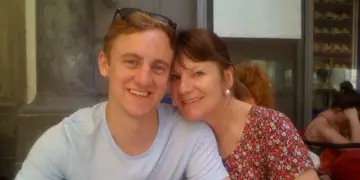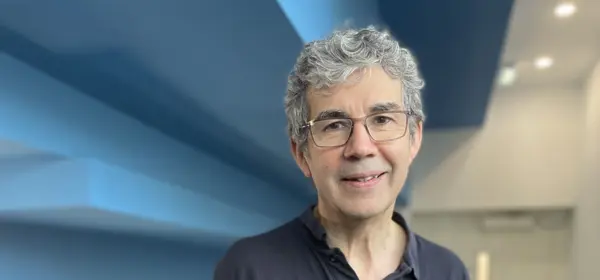Applications open to BMA Giving
Applications open to BMA Giving
Grants make it possible for charities to offer support for numerous causes from suicide prevention to helping doctors in war zones
‘The support we have received from the BMA has been fundamental.’
For charity CEO Ann Feloy, making a positive difference to the lives of others is a driving and central part of her own.
Her charity, Olly’s Future, was founded by Ann in 2020 in memory of her son Oliver, who tragically lost his life to suicide in 2017 at the age of 22.
In the five years since its inception, Olly’s Future has sought to bring change guided by its motto ‘love and light’ by raising awareness around suicide prevention.
One of its latest initiatives in November last year saw the charity deliver the Dr SAMS (Suicide Awareness in Medical Students) training course at the Royal Cornwall Hospital Trust.
Better understanding
The training, which was delivered to 50 foundation year 1 doctors, raises awareness and promotes understanding and openness around suicide and mental health among medical and healthcare professionals, with a view to this knowledge later being used to benefit patients.
The event was in part made possible thanks to a £3,500 grant from BMA Giving, an awards programme which provides financial support to UK-registered charities which champion the values and wider objectives of the association.
Last year saw BMA Giving donate a total of £75,000 to 12 health and medical-related organisations, including Olly’s Future, which has been a recipient of award funding since 2020.
‘The support we have received from BMA has been fundamental to us delivering Dr SAMS to medical schools across England and Wales and equipping first year students and F1 doctors with skills to talk about suicide with their peer and colleagues as well as their patients,’ says Ann.
‘It has also been the catalyst to those medical schools who received the training, going on to fund the delivery themselves.
‘Healthcare students are UK society’s future care givers [and] suicide is the commonest preventable cause of death in young people, especially men.
‘Many medical students will become general practitioners who deal with mental health in their daily practice. However, all doctors encounter patients with suicidal ideation, therefore medical students need to be equipped to have “everybody's business” conversations around suicide with confidence and compassion; these are transferable skills for other challenging conversations.’
Integrated training
For Ann, the years of support have helped make an enormous difference to the charity’s work and to honouring her son’s memory and legacy.
Looking forward, she hopes to realise her charity’s ambition to extend SAMS training to all 47 UK medical schools and see it integrated into the core medical curriculum or student induction.
‘The backing of the BMA has leant enormous professional weight to our work and also, as a bereaved mother who lost her son to suicide, it has enabled me to equip young people working in healthcare with the skills I wish I’d had to help my son when he needed it most.’
One doctor who participated in the training event was F1 Daisy Blakely who shared her experience of the event in a video published by the charity, stating that it been enormously valuable personally and professionally.
She said: ‘Because we are new doctors, and we need to get more comfortable having these kinds of conversations with our patients in the emergency department [and] GP practices.’
‘[As doctors] we’ve all started a really hard job, and people are really struggling [and] seen and done stuff that [has] brought up a lot of emotional and difficult experiences for a lot of people.
‘I think being aware of suicide and having the tools to be able to bring up comfortably in a safe way, will be really useful for all of our peers as much as it will be for patients.’
Repeat recipients
With applications to the 2025 BMA Giving awards opening today, recognising the important contributions the awards have made to medical charities and organisations to date is as timely as it is inspiring.
While the award scheme is always open to new applicants, there are some organisations which have become repeated recipients of support from the BMA, creating the potential for continuing and future collaboration.
These include the David Nott Foundation, which helps to train doctors working in war or natural disasters zones with emergency trauma surgery skills and the medical professional advocacy and support group Doctors in Distress.
Doctors in Distress was founded in 2019 by Amandip Sidhu following the death by suicide of his brother and consultant cardiologist Jagdip Sidhu.
The charity aims to help medical professionals suffering with burnout and mental and emotional exhaustion by providing safe, non-judgemental care through peer support groups.
Tackling sexism
Last year, it received £4,000 from BMA Giving to support its StampOutSexism project through an initiative aimed at helping doctors share and explore their experiences of sexism and sexual harassment.
‘We know that 91 per cent of healthcare workers experience sexism at work and that this is still a taboo and isolating subject,’ says Doctors in Distress interim CEO Susannah Basile.
‘With the funding received from BMA Giving, Doctors in Distress will be running six monthly listening groups for anyone who has experienced sexism or sexual harassment at their place of work in healthcare.
‘This group, facilitated by Surviving in Scrubs, will give people a community and space to come together and listen to others that have had a similar experience. We hope that these groups will foster a sense of togetherness.’
Applications to this year’s BMA Giving awards is now open, with the closing date for entries 6 March 2025. For more information on how to apply visit the BMA website.



